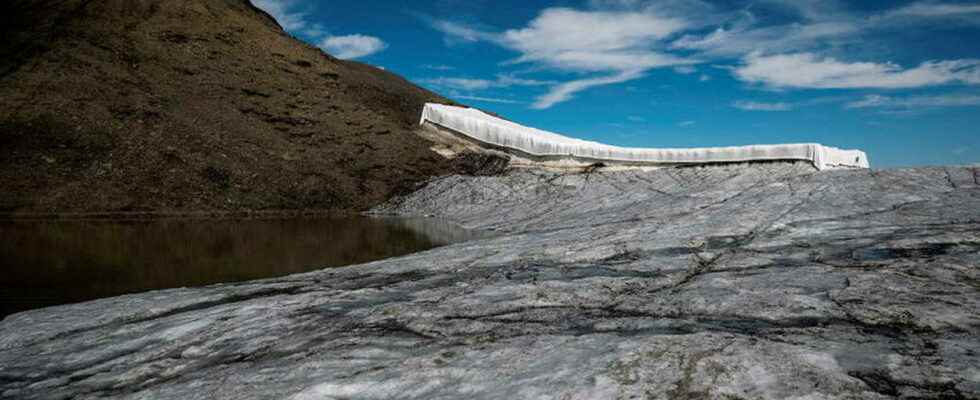Lhe volume of Swiss glaciers has been halved since 1931, according to a study published Monday August 22 by scientists, who have for the first time reconstructed the retreat of glaciers in the XXe century. The melting of glaciers in the Alps – which experts attribute to global warming – has been closely monitored since the early 2000s. But researchers did not know much about their evolution in the previous decades, because only a few glaciers were then closely followed.
To better understand their evolution, researchers from the Swiss Federal Institute of Technology in Zurich (ETHZ) and the Federal Institute for Forest, Snow and Landscape Research (WSL) proceeded to reconstruct the topography of the set of Swiss glaciers that existed in 1931. “Based on these reconstructions and comparing with data from the 2000s, the researchers conclude that the volume of glaciers was halved between 1931 and 2016,” said ETHZ. and the WSL in a press release.
The study, published in the scientific journal The Cryosphereindicates that the glaciologists used archive images (21,700 photographs taken between 1916 and 1947) covering 86% of the Swiss glacial surface and stereophotogrammetry, a technique that makes it possible to determine the nature, shape and position of an object using images.
READ ALSOMacabre discoveries in the Swiss Alps due to melting ice
Seas of ice reduced to mere traces
“If we know the surface topography of a glacier at two different times, we can calculate the difference in ice volume,” study lead author Erik Schytt Mannerfelt said in the release. The result is striking. Thus, the Fiesch Glacier, of which only a few tiny white spots remained in 2021, looked like a huge sea of ice in 1928. According to scientists, the glaciers have not retreated continuously over the last century. They even experienced episodes of mass growth in the 1920s and 1980s.
Despite this growth over short-term periods, “our comparison between the years 1931 and 2016 clearly shows that there was a significant glacial retreat during this period”, indicated one of the authors of the study, Daniel Farinotti, professor of glaciology at ETHZ and WSL. And the glaciers are now melting at an increasingly rapid rate.
While they lost 50% of their volume between 1931 and 2016, it only took them six years – between 2016 and 2022 – to lose 12%, according to the Swiss glacier survey network Glamos.
For Daniel Farinotti, the evidence is irrefutable: “The retreat of glaciers is accelerating. »
READ ALSOThe Arctic is warming four times faster than the rest of the globe
